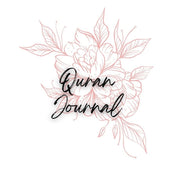Key Takeaways:
-
Divine Guidance: The Quran provides comprehensive guidance and regulations for Hajj and Umrah, emphasizing the importance of following these rituals with sincerity and devotion.
-
Sacredness of Makkah and the Ka'bah: The verses highlight the sanctity of Al-Masjid-al-Haram in Makkah and the Ka'bah, emphasizing the need to respect and protect these holy sites.
-
Balance of Obligations and Flexibility: The Quran outlines the obligations of Hajj and Umrah while also acknowledging individual circumstances that may require alternative offerings or exemptions.
Versus of the Quran Umrah
Verses from the Quran related to the pilgrimage (Hajj) and Umrah. These verses emphasize the sanctity and regulations related to these sacred acts of worship. Here's a brief summary of the verses you mentioned:
- Chapter 2, Verse 128, The Cow (سُوۡرَةُ البَقَرَة):
- It's a prayer where believers ask Allah to make them submissive and their descendants a submissive nation.
- They seek to be shown the rituals of pilgrimage (Manasik) and ask for acceptance of their repentance.
- Chapter 2, Verse 158, The Cow (سُوۡرَةُ البَقَرَة):
- Mentions that Safa and Marwah are among the Symbols of Allah.
- Performing the Tawaf (going) between them during Hajj or Umrah is not a sin.
- Doing good voluntarily during these acts is appreciated by Allah.
- Chapter 5, Verse 1, The Table Spread (سورة المائدة):
- Believers are reminded to fulfill their obligations.
- It specifies that game is unlawful during the assumption of Ihram for Hajj or Umrah.
- Chapter 5, Verse 96, The Table Spread (سورة المائدة):
- Lawful for believers is the pursuit of water-game and its use for food.
- Land-game is forbidden while in a state of Ihram for Hajj or Umrah.
These verses provide guidance on the spiritual and ethical aspects of pilgrimage and Umrah, emphasizing submission to Allah and adherence to the regulations set for these sacred acts.
Surah Al-Hajj and Surah Al-Ma'idah, provide guidance and rules regarding the sanctity of the pilgrimage (Hajj) and Umrah. Here's a summary of the key points:
- Chapter 22, Verse 25, The Pilgrimage (سورة الحج):
- Those who disbelieve and hinder people from the path of Allah, particularly from Al-Masjid-al-Haram in Makkah, will face severe punishment.
- The sanctity of Al-Masjid-al-Haram is emphasized, and those who incline to evil actions therein will face a painful torment.
- Chapter 2, Verse 196, The Cow (سورة البقرة):
- Believers are instructed to perform Hajj and 'umrah for Allah.
- In case of hindrance, they should offer a sacrifice (Hady) and not shave their heads until the Hady reaches the place of sacrifice.
- Those who are ill or have an ailment can provide a Fidyah (ransom) through fasting or charity.
- If performing 'umrah before Hajj, a sacrifice is required.
- Chapter 5, Verse 2, The Table Spread (سورة المائدة):
- Believers are warned not to violate the sanctity of the Symbols of Allah, the Sacred Month, animals brought for sacrifice, and the Sacred House (Al-Masjid-al-Haram).
- After completing the Ihram, hunting is allowed, and mutual help is encouraged in virtue and piety.
- Chapter 5, Verse 95, The Table Spread (سورة المائدة):
- Believers are prohibited from hunting game while in a state of Ihram.
- The intentional killing of game in this state requires a penalty, such as an offering brought to the Ka'bah or feeding the poor.
- Repentance is accepted, but repeated offenses will incur retribution from Allah.
These verses underscore the importance of respecting the sanctity of places and times associated with pilgrimage, the rules of sacrifice, and the consequences of intentional violations. They emphasize the significance of piety, charity, and adherence to divine commands during these sacred acts.
Chapter 5, Verse 97, The Table Spread (سورة المائدة):
- Allah has designated the Ka'bah, the Sacred House, as a sanctuary for mankind.
- It is a place of security, and both Hajj and 'umrah are prescribed for people, as are the Sacred Month, the animals for offerings, and the garlands. These are signs for people to recognize the vast knowledge of Allah encompassing everything in the heavens and the earth.
Chapter 73, Verse 20, The Enshrouded One (سورة المزمل)
- Allah is aware that believers stand in prayer during the night for varying durations—two-thirds, half, or one-third of the night.
- Allah, in His mercy, has lightened the obligation for those who find it challenging to pray the whole night.
- Believers are encouraged to recite the Quran as much as is easy for them. Allah knows the challenges they face, including sickness, travel, seeking sustenance, and engaging in Jihad.
- Despite these challenges, believers are urged to perform Salah, give Zakat, and lend to Allah a goodly loan, knowing that whatever good they send forth, they will find it with Allah, better and greater in reward.
- Seeking forgiveness from Allah is emphasized, as Allah is Oft-Forgiving and Most-Merciful.
These verses highlight the significance of the Ka'bah as a sacred place and the flexibility granted to believers in their acts of worship, taking into account their individual circumstances. The mercy of Allah is evident in the consideration given to the capabilities and challenges of the believers while emphasizing the importance of devotion, recitation of the Quran, and seeking forgiveness.
Deepen your understanding of the rituals of Hajj and Umrah with our curated collection of Islamic resources. From informative guides to essential prayer items, find everything you need to enhance your spiritual journey.
Explore more insights and reflections on verses from the Quran relating to various aspects of Islamic faith and practice on our blog.
Frequently Asked Questions:
Q: What is the difference between Hajj and Umrah?
A: Hajj is the annual pilgrimage to Mecca that is obligatory for Muslims who are physically and financially able, while Umrah is a voluntary pilgrimage that can be performed at any time of the year.
Q: What are the key rituals of Hajj and Umrah?
A: Both involve specific rituals, including Tawaf (circumambulation of the Ka'bah), Sa'i (walking between Safa and Marwah), and standing at Arafat (for Hajj).
Q: What is the significance of Ihram in Hajj and Umrah?
A: Ihram is a state of ritual purity that Muslims enter before starting the pilgrimage. It involves wearing specific garments and abstaining from certain actions.
Q: What is the Fidyah, and when is it required?
A: Fidyah is a form of compensation for those who are unable to complete certain aspects of Hajj or Umrah due to health reasons or other valid excuses. It can involve fasting, feeding the poor, or other acts of charity.
Q: Are there any specific restrictions regarding hunting during Hajj or Umrah?
A: Yes, the Quran explicitly forbids hunting game while in a state of Ihram during Hajj or Umrah.












